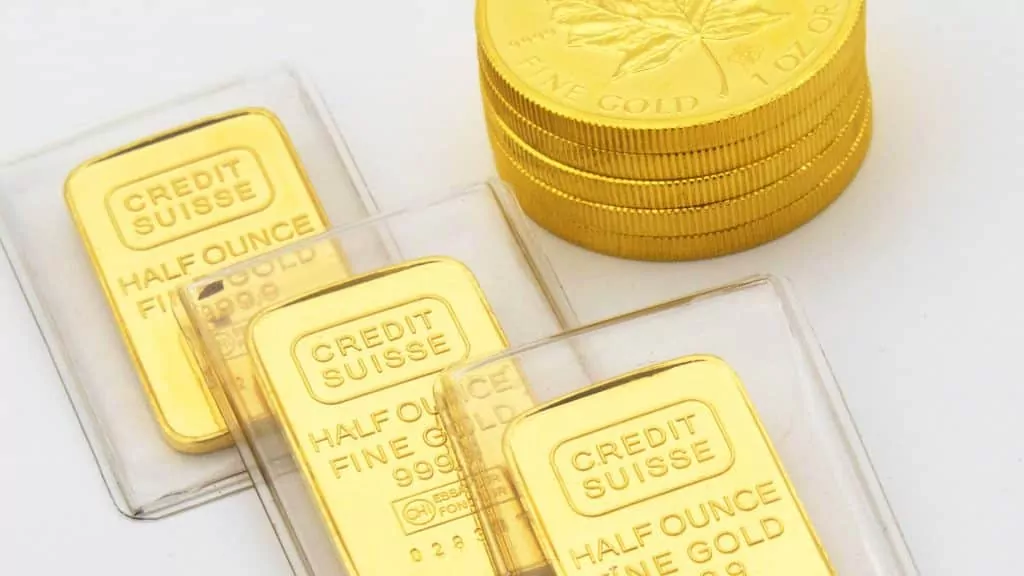by Toni Allen
Buying Precious Metals? Make Sure You Understand the Top 5 Risks
It’s been years since I made my first purchase of gold coins. I had been inspired by a book I read on the pros of investing in gold and silver. That book also included a chapter on how to buy coins without getting ripped off.
I felt proud of taking my first steps toward gold ownership. I enjoyed learning about the details of buying coins from mints around the world and receiving my first delivery in the mail.
From then on, I set aside a small part of every paycheck to purchase mainly silver or gold coins and small bars, but also occasionally other methods of investing in gold such as mutual funds, exchange-traded funds (ETFs), and stocks in companies that mine or explore for precious metals.
When gold goes wrong
Sadly, I’ve learned that there are many rip-off artists scamming people into investing in false promises dangled in front of them in the sparkling light of gold.
So I’d like to share what I’ve learned over the years about spotting scams or avoiding over-paying when buying gold or other precious metals. Hopefully, you can benefit from my experience without having to risk your own money!

Top 5 risks when buying gold or other precious metals
The first thing I recommend is to familiarize yourself with common techniques used by gold scammers. Scam artists prey on people’s greed and panic.
Since the pandemic started, for example, the public is being inundated with frightening statistics about a perceptibly crumbling economy; this opens the door wider for scammers to try to sell you wooden nickels or “fool’s gold.”
Don’t fall for it. Always use your rational mind, not emotions like fear, to make investment decisions. And never make snap decisions — give yourself several days to think about what you’re doing so that you aren’t pressured into doing something rash.
Here are some things you should look out for, that I’ve learned over the years to help me spot scams when buying gold or silver.
Fraudulent sales pitches
Scammers may try to convince you that you can profit from news that’s already publicly available. They may refer to themselves as “merchants” or “metals dealers” or as representatives of the precious metals company itself.
They may advertise online or on radio or TV or, even call you directly requesting your contact info.
Dishonest persuasion tactics
Scammers may try to dazzle you with promises of wealth and lead you to feel like you’re missing out on a wave and late to the game. They may predict price moves in gold. Or they may try to establish credibility by associating themselves with a respected firm or have particular credentials or unique experience, access and insight. Some may create an illusion of urgency and offer to do you a favor.
Too-good-to-be-true payment arrangements
Scammers may entice you with a financing agreement that allegedly minimizes risk while ramping up your profits.
For example, they may structure payments so you’re only paying a small fraction of the purchase price. Or they may promise to arrange a loan that covers the full price of the investment. They may even claim that they’ll store your investment for you in a so-called bank or other storage facility.
Failure to comply With regulations
Signing faulty agreements puts your investment at great risk, because you’ve given your consent to potentially defensible terms.
Faulty agreements could, for example:
- Claim transactions are not regulated by the National Futures Association or Commodity Futures Trading Commission.
- Exclude the name of the bank or financing institution lending you the funds to invest.
- Fail to identify the location of the storage facility or claim it’s located overseas.
- Include complex and hard-to-understand strategies for buying your investment to achieve allegedly outsized gains.

Loss of capital
Of course, the biggest risk with any investment is losing your capital investment. Any of the above red flags could ultimately lead you to lose all the money you invested.
Scammers could also charge you erroneous fees like interest or storage fees (when there is no bank financing or storage facility) or use your funds to pay their commissions rather than purchasing gold on your behalf.
The bottom line
I can’t stress enough how important it is to do your due diligence before forking over any money to a purveyor of an investment in gold or other precious metals, no matter how legitimate they seem.
Contact the National Futures Association (NFA) or the Commodity Futures Trading Commission (CFTC) to investigate a company’s business background, registration status and history of disciplinary action before doing business with them. The NFA is a self-governing body and the CFTC is the US government’s regulatory arm which enforces laws pertaining to commodities like gold and silver.
Also inquire about the financial professional trying to sell you the precious metals, what their qualifications are to provide this service, how their precious metals serve your financial goals and how they personally get paid for their services.
ABOUT THE AUTHOR

Toni Allen is a contributor and editor at Commodity.com, a leading resource on commodities markets and trading. She enjoys sharing insights that help new investors save money and avoid common pitfalls. In her spare time Toni enjoys spending time with her family and exploring the outdoors.












Very Informative Article Toni agrees with your points. To prevent this fraud, I advise you to learn to market yourself or take an expert opinion. Do not trust people who you do not know. You can visit the website of some of these trusted dealers, like Apmex, Jm Bullion, and BOLD Precious Metals, where you can get tips and guides on investing in precious Metals safely.